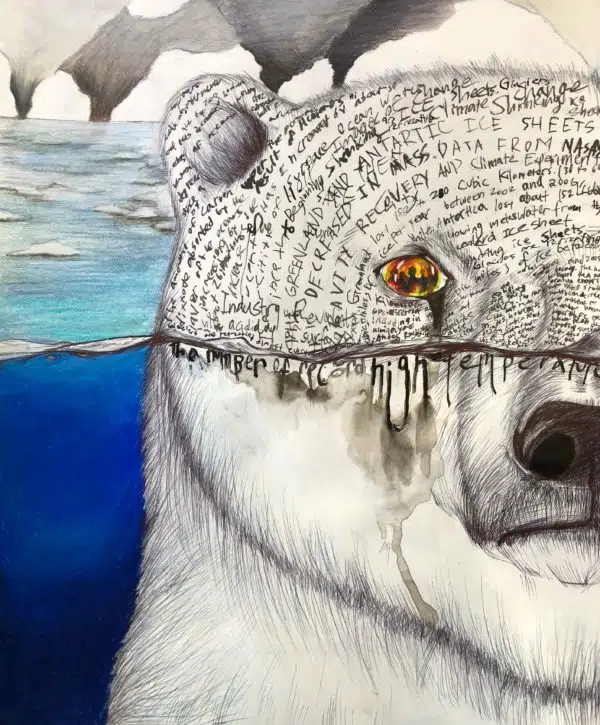Our world’s climate crisis is still an ongoing threat, not only to the well-being of our Earth but also, to the well-being of our people, especially the incoming future generations. According to the United Nations, Climate change involves long-term shifts in temperatures and weather patterns. However, human activities such as the burning of fossil fuels, deforestation and increased use of methane and other greenhouse gasses worsens our planet’s condition. This issue is a crisis that humans are mostly responsible for and the alarming rate of our Earth warming up is destroying the biodiversity of our environment. Its devastating impacts weaken our agriculture, increase risks or resource scarcity and pose health risks to everyone including animals. These extreme rapid changes in our climate lead to endangerment of animals due to habitat loss, severe drought threatening our water supply, and reduced soil quality, which hinders crop growth. This disproportionately impacts people of color and lower-income communities because of the lack of resources and support, leaving them more vulnerable to the effects of climate change. With its effects creating destruction of our environment, wildlife and agriculture, confronting this climate crisis is an obligation that must be taken seriously.
Helping lessen the severity of climate change requires everyone’s participation , not just an individual effort. This is why mitigating these effects early is vital to ensure our planet’s overall well being in the long run. Spreading awareness to the public is one of the important ways we can confront this climate crisis. Bringing this conversation up and emphasizing how serious this issue is, can encourage people not only to advocate for solutions but also to reach out to government officials and organizations regarding this issue. This can prompt policy interventions and organizations to broaden community engagement in combating climate change. Restricting overhunting and fishing practices, limiting cutting down of our forests, banning oil drills and taking public transportation or simply walking are ways we can protect our waters, support wildlife and stabilize greenhouse emissions in our atmosphere. While individuals have the ability to make personal efforts, our leaders’ role also plays a crucial part in preventing destructive human activities from deforestation, over-consumption of energy and further adding gas emissions to our atmosphere. Certain policies and practices from organizations that support our planet’s safety can promote sustainability especially in how we use energy, reduce reliance on fossil fuels and manage our environment and resources more effectively. How we produce and consume products is another factor that must be monitored because many of our oil based commercial products are threatening our environment and economy. They continue to add more carbon to our atmosphere, and these products end up as waste in landfills or the ocean. Therefore, continuing the “reduce, reuse, recycle and repair” practices, leaning towards bio-based products, and thinking about converting our wastes into valuable and useful products can decrease the amount of landfill waste that we create, addressing our planet’s waste management challenges. This is intertwined with the innovations that our industry needs. Pushing our industry to decarbonize our manufacturing, minimizing dependence on petroleum and ultimately, reducing toxic chemicals and energy use in production can decrease the gas emissions that warms up our planet. When this crisis is not addressed properly and promptly, it threatens our security in food, water and other environmental resources and further widens the inequalities in our society, disrupting the living conditions of our people especially the minority groups.
This is a crisis that should not be ignored, and we must act to alleviate the negative impacts as well as address what causes it. In these challenging times where the media discusses the rising temperatures, increasing endangered species, and resource scarcity that everyone deserves to have access to, it is important to understand that solving these problems will take more than one day, voice and hand. In order to confront and move forward with this problem, It will need more support and attention than it will ever have.
